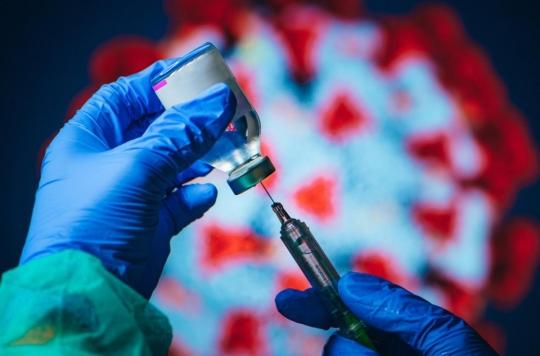The drug uses synthetic antibodies to mimic the action of the immune system and prevent the virus from replicating in cells. Germany has ordered 200,000 doses.

- Germany has just authorized two new treatments against Covid-19 which are based on synthetic antibodies
- These are the treatments that were administered last fall to Donald Trump when the former President of the United States contracted the coronavirus
This is a first in the European Union. The German Minister of Health, Jens Spahn, announced on Sunday January 24 that his country authorized two new treatments against Covid-19 whose action is based on synthetic antibodies: they make it possible to block the tip of the virus and the prevent it from attaching to and then entering human cells. It should be used early in the infection to maximize its chances of success. When the disease enters its second phase, the danger is no longer the virus, but the reaction of the immune system, which causes severe inflammation. According to the Minister of Health, synthetic antibodies “work like a passive vaccination”, and make it possible to prevent progression to these serious forms. In early October 2020, this type of drug was used to treat former US President Donald Trump.
Two different drugs that work similarly
200,000 doses were purchased by the German government for 400 million euros. They will be administered free of charge to the sick. The use of this type of therapy will be determined on a case-by-case basis, to prevent “severe illness or hospitalizations among certain risk groups“. Two American companies should provide the treatment to Germany: Regeneron, which manufactures Casirivimab / Imdevimab and Eli Lilly, producer of Bamlanivimab. The operation of these two products is similar but the first is based on two synthetic antibodies, against only one for the second.These two drugs have been authorized since November in the United States.They are administered to people at risk, those suffering from comorbidities, such as diabetics, immunocompromised people or those with kidney failure. has not yet approved their use.
Many treatment trials are underway
Several treatment trials against Covid-19 are underway around the world. Recently, Canadian researchers have shown that the colchicine, a medicine used for gout, reduced the severity of the disease. Of 4,500 patients infected with the virus, half received the drug and the second part of the group took a placebo. In the first group, colchicine reduced the hospitalization rate by 25% and the death rate by 44%. However, the treatment presents a high risk of side effects, if these results are positive, there is still a long way to go before possible authorization. In recent months, another drug had raised hopes before being discarded: hydroxychloroquine, several studies have demonstrated its ineffectiveness in treating infected patients.

.
















